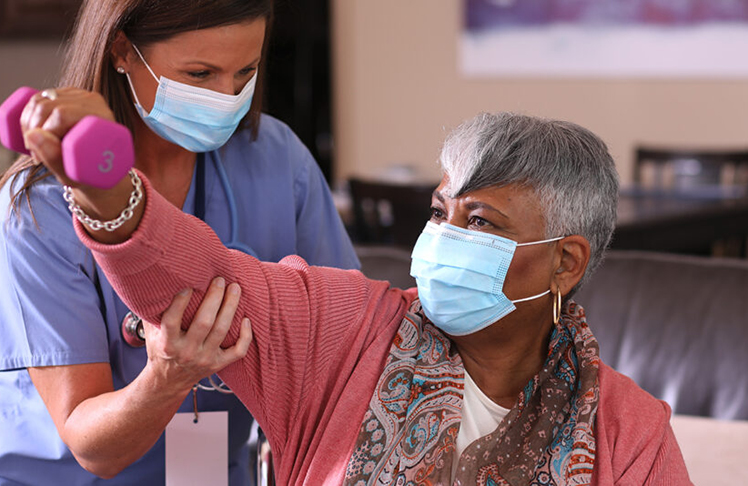
By Stacy M. Brown, NNPA Newswire Senior National Correspondent
The U.S. Department of Health and Human Services’ Administration for Community Living has released $1.4 billion in funding from the American Rescue Plan for Older Americans Act programs, including initiatives to support vaccine outreach and coordination, address social isolation, provide family caregiver support, and offer nutrition support.
The department also plans to fund justice programs to ensure the safety and protection of older adults.
According to a White House fact sheet released on May 3, officials plan to distribute the funds as follows:
- $750 million for meals for older adults. With this funding for Older Americans Act nutrition programs, states will be able to continue home-delivered meals as well as “drive-through” or “grab-and-go” meals for older adults who typically would participate in meal programs at community centers that have been closed due to the pandemic. It will also allow states to re-open meal program locations safely that might have closed during the pandemic.
- $460 million for Home and Community Based Services (HCBS) through the Older Americans Act. This funding provides help to those who need it for help with household chores and grocery shopping; transportation to essential services (such as grocery stores, banks, or doctors); and case management. The funding can also be used to vaccinate older Americans and address the effects of extended social isolation.
- $44 million for evidence-based health promotion and disease prevention. This includes programs to address fall prevention, managing a chronic disease, and programs to detect and reduce depression among older Americans.
- $145 million to help family caregivers support their loved ones. This funding for the National Family Caregiver Support Program will assist family and informal caregivers to provide in-home supports, including counseling, respite care, training and more.
- $10 million to safeguard the health and welfare of residents in long-term care facilities. These funds will support State Long-term Care Ombudsman programs to advocate on behalf of residents of long-term care facilities across the country. This money will allow ombudsman programs that are advocating for residents to safely go back into facilities after they had to discontinue that support during the pandemic, and continue to promote the health, safety, welfare, and rights of residents.
The announcement coincided with a presidential proclamation honoring May 2021 as Older Americans Month.
“The proclamation recognizes that older Americans and families have faced substantial challenges during the last year, and their resilience and strength have made our country stronger,” administration officials stated. “Older adults deserve to age with dignity and have equitable access to the long-term care system, regardless of race, sexual orientation or gender identity, disability, or socioeconomic status.
“The Biden-Harris Administration is committed to expanding access to health care, nutrition services, caregiving, and opportunities to age in place for all older Americans.”
In the first 100 days, the Biden-Harris Administration has taken significant steps to address the health and security of older adults, the White House stated.
In addition to the funding announced today, the Administration has:
- Expanded Funding for Home and Community Based Services.
- Increased Access to Affordable Housing for Seniors.
- Provided COVID-19 Vaccinations and Testing for Elderly Residents of HUD-Assisted Housing.
- Expanded Nutrition Assistance for Low-Income Seniors.
- Proposed Robust Investments in the Caregiving Economy.
“The American Jobs Plan proposes to invest an additional $400 billion to expand access to these long-term services and supports for older Americans,” administration officials stated.
“This investment will also support well-paying caregiving jobs that include benefits and the ability to collectively bargain, building state infrastructure to improve the quality of services and to support workers.
“The funding will take significant steps to help older adults get high-quality care in their homes and communities.”












